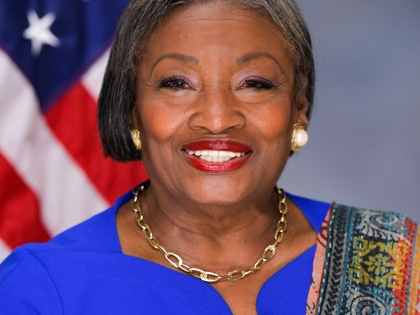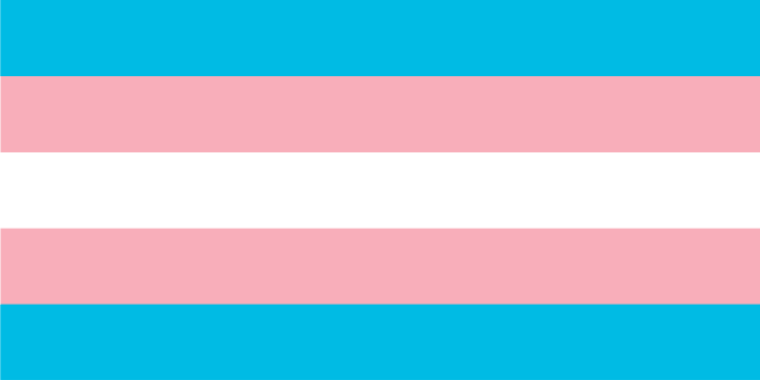
Senate Democrats Combat Sexual Harassment In The Workplace
January 2, 2018
Albany, NY - Under the first woman leader of a New York State Legislative Conference, Andrea Stewart-Cousins, the Senate Democrats have been at the forefront of combating inequality and injustice. Senate Democrats today unveiled a series of bills to combat sexual harassment in the workplace. With recent revelations of ongoing, systemic sexual harassment in both the public and private sector, the need for strong action from state government is clear. These Senate Democratic proposals will address this crisis and help ensure employees in private and public sector offices are treated with respect and equality.
“We must have zero tolerance for sexual harassment. No New Yorker should be subjected to harassment at their workplace,” Senate Democratic Leader Andrea Stewart-Cousins said. “This Senate Democratic bill package will send a strong message that this type of behavior will not be tolerated. Our proposals will combat sexual harassment in public and private sector offices, ensure public officials cannot use taxpayer money for settlements, protect New Yorkers from retaliatory actions, and shine a light on workplace harassment allegations and settlements. If the current Senate Republican Majority does not act on this legislation, I will ensure it is passed when the Senate Democrats come to power later this session.”
Senate Democratic Deputy Leader Michael Gianaris said, “The workplace should not be a place of danger for those who are simply trying to do their jobs and gain career experience. The legislation proposed by Senate Democrats would help better protect workers in the private and public sectors alike and should be passed as soon as possible.”
The anti-sexual harassment bill package is part of the Senate Democrats’ ongoing commitment to build a stronger, fairer state. The legislation advanced by Leader Andrea Stewart-Cousins, Senators Brad Hoylman, Tim Kennedy, Senator Liz Krueger, and Roxanne Persaud, and supported by the Senate Democratic Conference, will address sexual harassment in both the public and private sectors and protect New York workers.
Mario Cilento, President of the New York State AFL-CIO, said “The New York State AFL-CIO has added the important issue of addressing sexual harassment in the workplace to our legislative agenda and I am very pleased Senate Democrats are also committed to making this a priority issue this session. For far too long sexual harassment has been overlooked resulting in intolerable working conditions that have been harmful to countless women and men. Training and accountability are essential to ensuring a safe work environment where all working people are treated with dignity and respect. We look forward to partnering with the Senate Democratic Conference to get solid, responsible legislation addressing this issue passed in New York State.”
The legislation advanced by the Senate Democratic Conference includes bills that will:
- Make State Legislators Personally Liable for Settlements of Claims of Sexual Harassment made Against Them: This bill, S.7196 sponsored by Senator Brad Hoylman, would ensure that any settlement amounts provided by a house of the State Legislature to the victims of sexual harassment perpetrated by a member of the State Assembly or State Senate be reimbursed by the offending legislator. This would ensure that taxpayer money is not spent to resolve findings of wrongdoing by public officials.
Bill Sponsor Senator Brad Hoylman said, “The abuse of confidentiality agreements enabled Harvey Weinstein – and countless others – to prey upon generations of women and conceal a culture of abuse. It is time to restore the balance of power and give victims their voices back. I'm proud to join Democratic Leader Stewart-Cousins and the entire Democratic Conference in putting forth this comprehensive package, including my legislation to prevent predators from ever again buying the silence of victims.”
- Hold Public Officers to a Higher Standard: This bill, S.6975 sponsored by Senator Tim Kennedy, will add provisions to the Public Officers Law explicitly prohibiting acts of sexual harassment. Additionally, this legislation would recognize that sexual harassment would constitute a breach of the ethical Code of Conduct and subject any offending public officer to a civil penalty of up to $10,000.
Bill Sponsor Senator Tim Kennedy said, “Anyone who holds the public’s trust must also be held to a higher standard of behavior. As elected officials, we have a responsibility to represent the voices of our communities and lead by example. As such, if a public officer commits sexual harassment, they should be punished accordingly. My legislation aims to help restore the public’s trust in government, and I urge my colleagues in the State Senate to pass it immediately.”
- Strengthen Anti-Retaliation Provisions: This legislation, S.7192 advanced by Senator Roxanne Persaud, will ensure employees who report incidents of sexual harassment to the State Division of Human Rights are guaranteed job security and shielded from retaliation. This bill will also mandate that employers prove that any adverse employment activity made against claimants have no connection whatsoever with the reporting of allegations of sexual harassment.
Bill Sponsor Senator Roxanne Persaud said, “We must ensure that no victim of sexual harassment is under the threat of retaliation simply because they spoke out. My legislation will ensure stronger anti-retaliation protections so that those who report these incidents are not threatened with unfair punishment. We must act immediately, and I urge my Senate colleagues to work with the Democratic Conference and pass these bills as soon as possible.”
- Crack Down on Sexual Harassment in the Private Sector: This legislation, S.7193 advanced by Senator Liz Krueger, will codify sexual harassment as an unlawful discriminatory practice and ensure that employees of small businesses may bring a claim of sexual harassment/gender discrimination against their employer. This will bill also lower the standard for a sexual harassment case to make sure that one incident of harassment is severe enough to sue for damages. By distributing model policies and better information about anti-harassment laws, this legislation will support better practices by small businesses and corporations.
Bill Sponsor Senator Liz Kruger said, “This year we've seen what happens when celebrities speak out against those who have sexually harassed them. But in this #MeToo moment, we must also ensure that regular working people can hold their harassers to account as well. Women and men throughout the workforce are victimized by sexual harassment, and this package of bills will help protect them, and give them a voice to protect themselves.”
- Provide Fairness in Arbitrations and Limit Confidentiality: This bill, S.6382-A sponsored by Senator Brad Hoylman, will void most confidentiality agreements for settlements of sexual harassment cases. This legislation will also bar contracts from denying workers’ procedural rights in arbitration agreements as a condition for employment.
Bill Sponsor Senator Brad Hoylman said, “It’s outrageous that public funds can be used to cover-up sexual misconduct. My legislation would prevent this by requiring legislators to reimburse New York State for any public funds used to pay financial settlements in cases of sexual harassment. Taxpayers, of all people, shouldn’t be footing the bill for the misdeeds of their elected representatives in Albany.”
- Crack Down on Sexual Harassment in the Public Sector: This legislation, S.7195 advanced by Senate Democratic Leader Andrea Stewart-Cousins, will require the adoption of a strong managerial policy against harassment by all Executive agencies and the State Legislature. These policies will outline clear rights for employees facing harassment, including interns and fellows, and will make provisions to hold supervisors accountable for bad conduct they knew of and allowed to continue. This bill will also require that Legislative investigations be concluded within 60 days, a recommendation of action must be completed within 30 days of the investigation conclusion, and findings will be posted online with personal information redacted. Public sector employees will be required to have 2 hours of annual training on harassment in the workplace and an additional hour of training for supervisors. Similar policies and training procedures will also be applied for large state contractors.
Senator John E. Brooks said, “I strongly support the Bill Package to Combat Sexual Harassment in the Public and Private Sectors in light of ongoing revelations of widespread, systemic sexual abuse and harassment in numerous workplaces. Making State Legislators personally liable for settlements of claims of sexual harassment made against them would ensure that any settlement amounts provided by a house of the State Legislature to the victims of sexual harassment perpetrated by a member of the State Assembly or State Senate be reimbursed by the offending legislator. This would ensure that taxpayer money is not spent to resolve findings of wrongdoing by public officials. All employees deserve a safe work environment and must be treated with respect on the job. When a worker is violated, the taxpayers should not be financially burdened with the ramifications of an elected official’s wrongdoing.”
Senator Brian Kavanagh said, “Every New Yorker has a right to a workplace free of sexual harassment. I'd like to thank Democratic Leader Andrea Stewart-Cousins and our colleagues in the Democratic Conference for putting forth this legislative package and advancing the conversation about what we can do to secure that right in both the public and private sector.”
Miriam Clark, President, NELA/NY, said, “NELA/NY, the New York Affiliate of the National Employment Lawyers Association, strongly supports the bill proposed by the New York State Senate Democratic Conference that will eliminate the severe or pervasive standard that has acted as a barrier to countless victims of sexual harassment. Workers in New York, from the smallest workplaces to the public sector, need strong laws that make clear that no amount of sexual harassment is acceptable. We are also pleased to see a new, multi-pronged approach to curbing sexual harassment and look forward to the development and dissemination of model policies that will help employers prevent sexual harassment.”
Craig Gurian, Director of Fair Play Legislation and a civil rights attorney for nearly 30 years, said, “All across the country, there has been a lot of rhetoric recently about the evil of sexual harassment, but far too little concrete action, especially when it comes to the vast numbers of women who experience harassment in the private sector. The Senate Democrats’ proposal takes a hugely important step of helping victims of sexual harassment better vindicate their civil rights under the State Human Rights Law by getting rid of the judge-invented ‘severe or pervasive’ doctrine that for so long has operated as a harsh and inequitable barrier to effective enforcement of the right to be free from sexual harassment in every workplace.”
Liz Manne, an Independent Film Industry Veteran and #MeToo Activist, said, “Senator Holyman is leading the charge to protect all workers from sexual harassment, discrimination, and retaliation. In busting open our society’s longstanding culture of silence, the #MeToo movement has exposed to the public the pervasive and toxic underbelly of workplace harassment and discrimination. Through crucial legislation and advocacy, Senator Hoylman is leveraging this cultural moment for durable and meaningful change, demonstrating precisely the kind of leadership America’s elected officials are supposed to be doing on behalf of their constituents.”
Share this Article or Press Release
Newsroom
Go to NewsroomStatement from Senate Majority Leader Andrea Stewart-Cousins
February 8, 2021
Celebrating Black History Month
February 2, 2021
